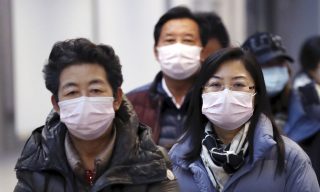South Africa’s seafood market is experiencing a decline in revenue as a result of the coronavirus outbreak in China. Reuters reports that lobster fishermen in the country’s Western Cape are stuck with their catches as there is no market for them.
In 2019, China bought 95 percent of the total allowable lobster catch of 1,084 tonnes in SA’s Western Cape. Hence when it halted seafood imports and live animal trade last month to prevent the COVID-19 from spreading through international trade, the result is an obvious loss in financial revenue for SA’s fishermen and consequently less income for the people working in lobster processing factories.
Before now, live exported lobster sold for up to 340 rand ($22) per kilogram but now it’s sold for 120 rand per kilo in the local market. This has dire consequences on the pockets and livelihood of fishermen and traders. “We are basically the worst off because of the coronavirus. The effects might be economic or financial in the upper echelons of the industry, but down on the ground here it is survival, pure survival,” said a fisherman.
SA’s fishing industry is just one of many casualties of the coronavirus outbreak. As the world’s second-largest economy and biggest oil importer, China’s isolation is disrupting trade, businesses, and economies globally, particularly in Africa where the Asian powerhouse has a strong presence.
Oil prices have dropped by 14 percent this year due to China’s declining demand for the product. As a result, African countries like Nigeria, South Sudan, and Angola, that are dependent on the revenue generated from the sale of crude oil are already recording losses. Two weeks ago, plunging oil prices amidst the viral outbreak prompted the IMF to downgrade its growth forecasts for Nigeria.
But it’s not just oil; the outbreak has also affected Nigeria’s importation and various business supply chains. China is Nigeria’s biggest source of imports. According to a report by the Nigerian Bureau of Statistics, Nigeria’s imports from China reached N1.99 trillion in the first half of 2019 and climbed up to N2.2trillion in the third quarter of the year.
With most of mainland China on a lockdown, economic activities are slowing, consequently affecting exports to Nigeria. In light of this, Nigeria’s National Agency for Food and Drug Administration and Control has forecasted drug insecurity.
A host of other African countries and African-based companies are also heavily dependent on China for some form of input, be it imports or exports. The country is responsible for over 50 percent of Eritrea’s, zinc and copper ore export, and 45 percent of cobalt export in the Democratic Republic of Congo. China is also the biggest financier of Africa’s infrastructure, funding one in five projects and constructing one in three.
Outside Africa, the economic effect of the coronavirus outbreak is most apparent in the aviation industry. Over 40 airlines around the world have cancelled or suspended flights to China and neighbouring countries in response to the outbreak. Several more have modified their services on other routes.








